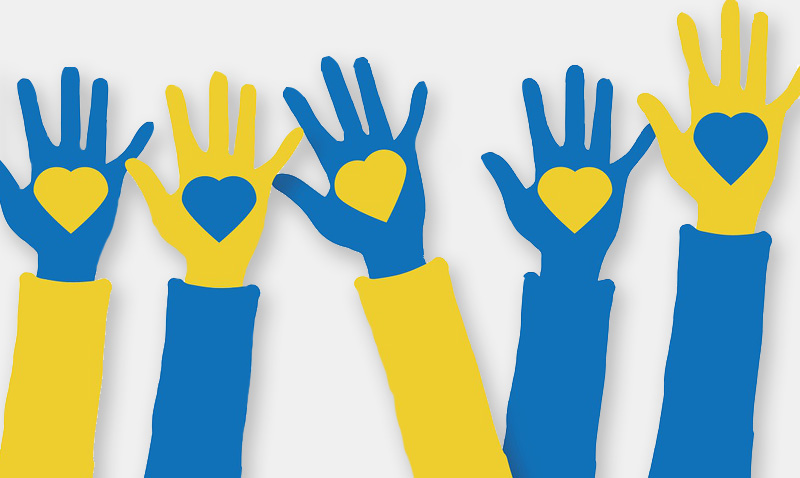

In this study of May 2022 everything revolves around the topic of war – specifically the war in the Ukraine and its impact on Austria. We wanted to find out what our probands think about it and how they handle it. 316 were asked, and they could choose between a short (n=84) and a long (n=232) version of the questionnaire.
Our goal was to find out to which extent our participants were personally affected by the war. On a scale of 1 to 7 (1 = not at all, 7 = immensely), 7% of participants answer “7 – immensely”. 6% say they are not at all affected (1). 13% answer with 6, the largest segment of participants (26%) says 5. 14% see themselves not very affected and answer with 3, 13% say they are almost not at all affected (2). 20% are in the middle ground and answer the question with 4.
We also wanted to determine to which extent and in what way our participants helped those who were directly affected by the war. Probands could answer on a scale of “1 – not at all” to “7 – immensely”. It shows that a majority of participants tends to be on the lower end of the scale: 19% of probands answers with “1 – not at all”. 16% say 2, 18% answer with 3. Just 2% of participants answer with “7 – immensely”, 3% answer with 6. 16% choose 5 for their answer. The largest fraction of participants, more than a fifth of probands, answers with 4.
Interesting for us to know was also if the participants see it as their duty to help those affected by the war. Participants could decide on a scale going from “1 – I don’t agree at all” to “7 – I agree completely”. 10% did not agree at all, 6% did not agree. 9% disagree more than they agree. Close to a quarter of probands sees themselves in the neutral middle ground. Also another quarter of participants (25%) agrees more than disagrees that it is their obligation to help. 15% agree, and 11% agree completely.
All in all it shows, that those people who feel personally affected are also those that help. Donation of money and materials are the most common way for them to show support. There was no significant difference between age groups or genders.
Participants show a lot of interest in the war itself: 59% say that they follow the news (rather) closely. 42% of probands are willing to pay higher gas prices if it meant reducing the dependency on Russia. A majority of 85% (rather) agree that they can feel the higher prices in consequence of the war.
You can find the full study here!
published: 14.06.2022